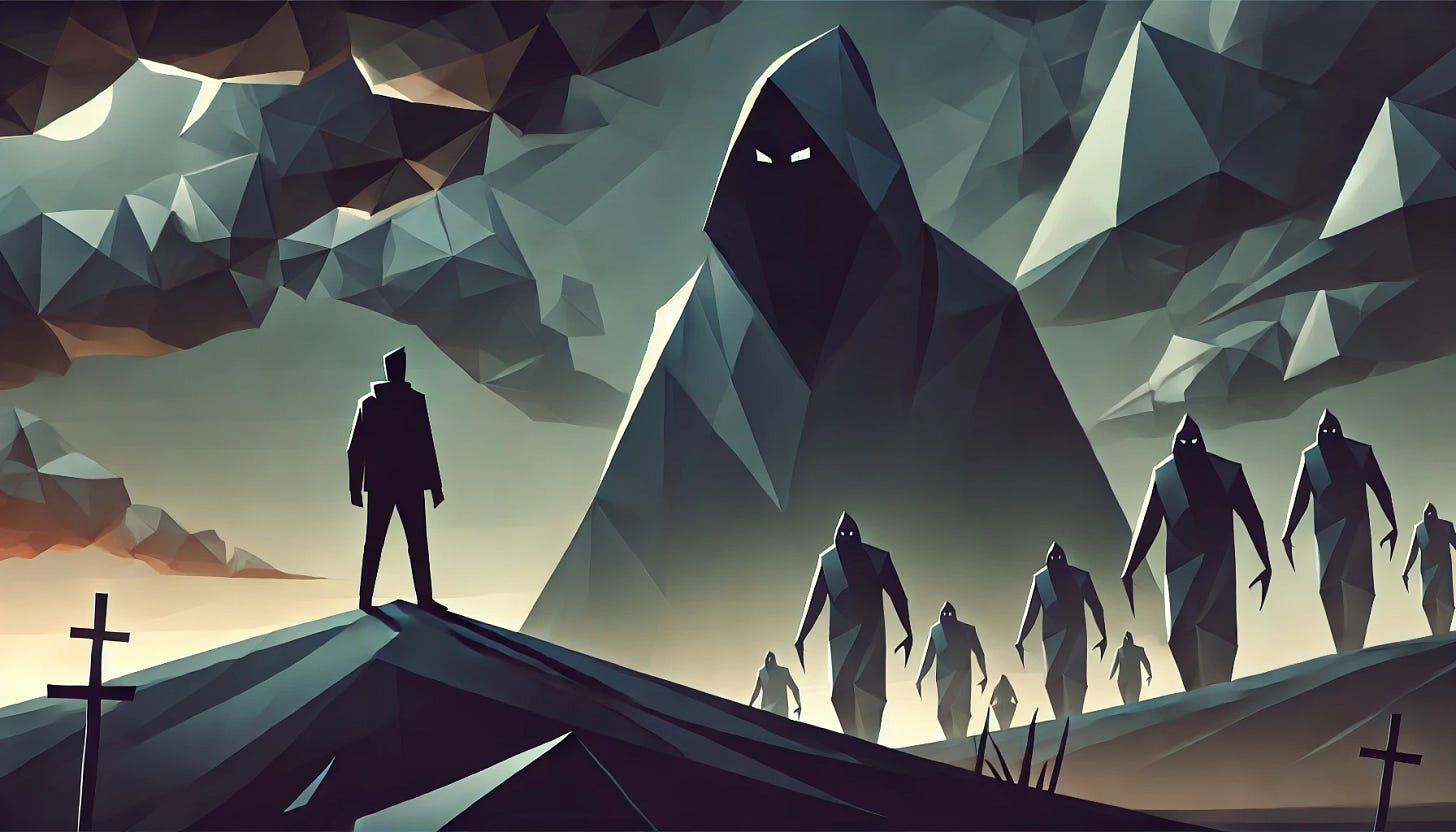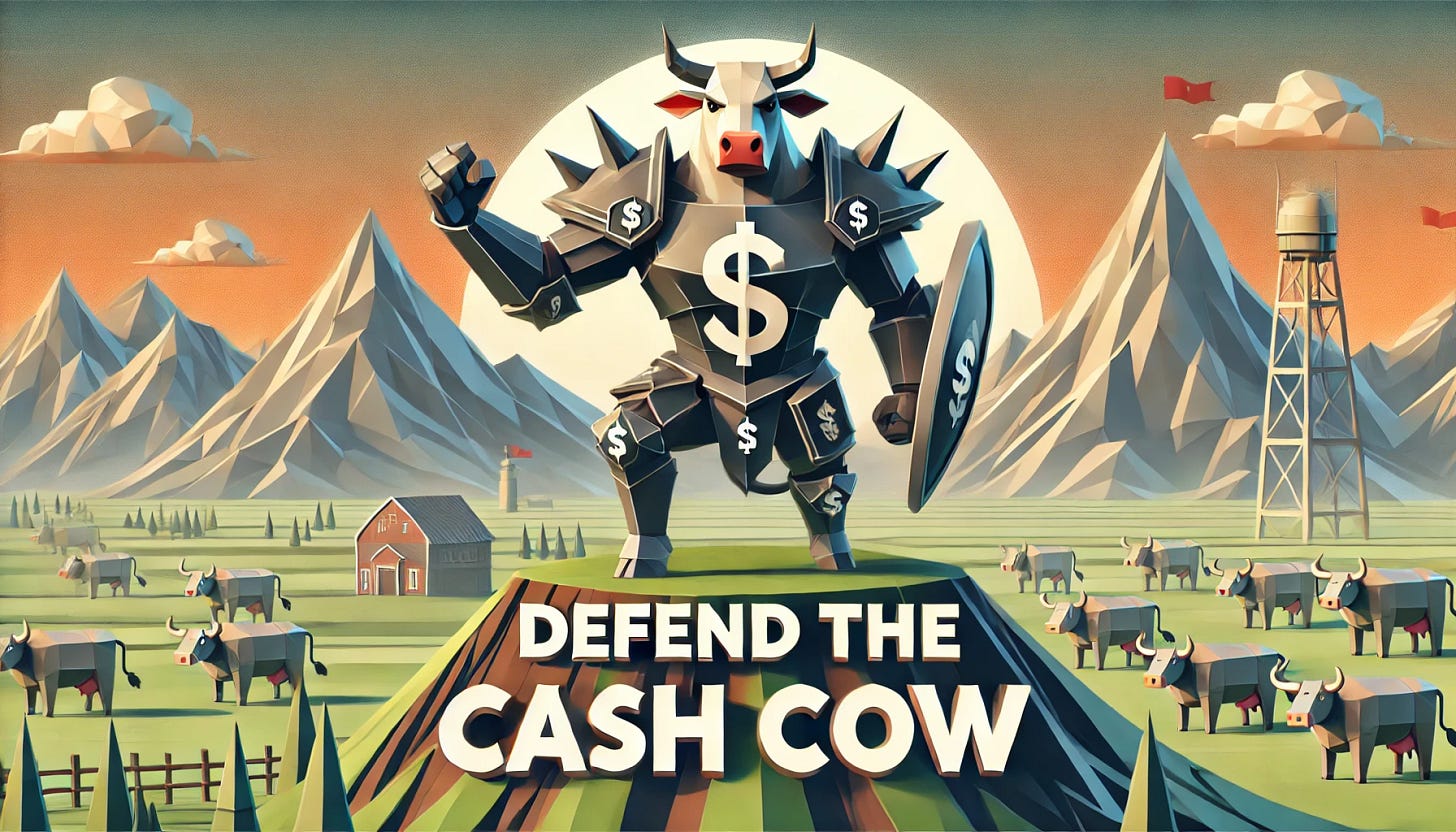All my Enemies
Everyone likes a good fight
If you’re an All I Really Need To Know I Learned in Kindergarten type, you know that at first, its all about making friends. At Friendship Day Camp we sang, err screamed:
🎶 Make new Friends, but keep the Oooo-old!
One is Silver and the other Go-Oooold! 🎶
Last week I told you about about my elementary school frenemy Michael, but in retrospect, he was awesome. I was just a little scared of him.
This trend continued through high school. Make friends, not enemies.
I hit a bump in the road in college, going up against not one, but two enemies. I had the evilest roommate. He was a dastardly bastard, first taking over elements of my personality, and then my wannabe girlfriend. In a double wammy to my weakened psyche, I got a D in Discrete Math. I could not get my head around graph theory.
So, I dropped out for a semester.
Ditched my enemies, dipped back to LA and had the best time working two jobs. I worked at Swensen’s selling ice cream and Sears selling PCs. I made more friends! You can never have too many. Then I went back to Berkeley and had the best summer - swapped in my best friend Rich as my roommate, got a girlfriend and regained my will to Computer Science, vanquishing Discrete Math with a B+.
It felt like such a big deal to drop out of college, but whatever, everyone needs a break sometime.
After I graduated, I made more work friends. My first programming job was at LA County working on low income housing, and the other programmer was in a band so I’d go cheer him on at his gigs. The ops guy for our minicomputer wanted to be a lifeguard, so we’d train together and go swimming in the ocean.
Life was pretty friendly, pretty chill. It was time to make some enemies.
I went up to Seattle to get my MBA and switched over from working public sector to private. From programming to consulting. I started learning about competitors. About market share. About taking share. About winning deals.
Soon it became all about the enemies.
If you’re a Diamonds are made under pressure type, you know about competition. Sure we had competitors when I worked in smaller shops, but they really came into focus, into shooting range if you will … when I started at Microsoft.
You must vanquish many enemies to be as successful as Microsoft.
I had tons of friends at Microsoft. I really liked the people I worked with - they were all smart and capable, something that hadn’t always been the case when I worked in the public sector. The enemies were external, they were our enemies and I was ready to fight.
My first tour of duty was building big corporate e-mail systems and IBM was the enemy. I took this one head on - my history with IBM wasn’t great and I wanted to win. Outlook was our email system, and coupled with Office it became the key to enterprise collaboration and central to Microsoft’s Enterprise Sales Agreements.
We took IBM down. Outlook still dominates corporate email systems today, with Google but a distant competitor, and IBM long out of the game.
My next campaign was fought to advance the evolution of e-mail into real-time collaboration, leveling up to chat, conferencing, audio/video and phone systems. Cisco was the incumbent - my new enemy. While I didn’t have a personal beef with Cisco - I’d done a lot of work installing and configuring their network gear - I happily took it on, working Microsoft’s strengths in software to marginalize Cisco’s position in hardware, while we made our products better, more competitive.
Cisco had the high ground - every customer’s network ran on their routers and switches. I’d call that one a draw. We won lots of chat and meeting business, but never got the upper hand on voice or VoIP.
Cisco rose up as the internet was built on top of their network gear, but their growth has stagnated and they’re tied to their hardware roots. While Cisco is trying an AI pivot, I suspect they’ll go the way of IBM.
Final tour - MS Teams. One way to look at Teams was that it was the natural evolution of all Microsoft’s collaboration tools, rebuilt for a new era of cloud computing. Another way to look at Teams was it was built to compete with Slack. Slack burst onto the battlefield with a viral chat based collaboration tool that threatened to weaken our enterprise email and chat offerings. This was a direct threat to Microsoft’s core collaboration business.
Once the pandemic hit, Teams’ primary competitor switched from Slack to Zoom. There was plenty of pandemic for everyone. We won, Zoom won. Now that the pandemic has passed, Zoom is struggling a bit. But hey, like Kleenex, they defined a new word associated with being sick. Slack got acquired by Salesforce so now they’re playing a different game.
Microsoft’s list of enemies is much much longer than this. I only worked in one space. Amazon - specifically AWS or Amazon Web Services is a bigger competitor than IBM + Cisco + Slack + Zoom combined. AWS and the transition to cloud computing was an existential threat to Microsoft.
The cloud pivot was masterfully executed by Satya Nadella, who took over as CEO from Steve Ballmer 10 years ago. Satya brought in a more collaborative approach. Enemies became partners. For example, open-source software, once an active front as a threat to Windows, is now embraced by Microsoft.
Microsoft’s cloud is called Azure, and it continues to catch up to AWS with double digit growth every year. Azure is the fabric that connects Microsoft to its AI partner OpenAI/ChatGPT. AI is the next battlefield, and the biggest collection of tech enemies ever assembled has entered the arena for a battle royale to decide the future of tech.
Can Satya pull off another pivot to AI? Meta is giving off enemy vibes claiming AI open-source high ground with their Llama model, versus closed models like OpenAI’s ChatGPT. Llama’s weights are available to tweak, but Meta gives no access to how the model was trained nor the code it was built on. Not open-source.
The games change, the enemies shift, Fight!
I’m trying to make enemies at Wirepine. Have you vanquished all your enemies or are you still working on a few?
best, Andrew




Having a rival can be really helpful if you're trying to unite a team. The businesses I've started all began as underdogs, but some rose to something more like leaders in their fields. It's been interesting to be a part of this movement from the inside, but also: I guess we didn't really need to have ONE rival since we were kinda fighting for existence/survival.
More history about Sniderman 🕷️ Enjoyed your memories.